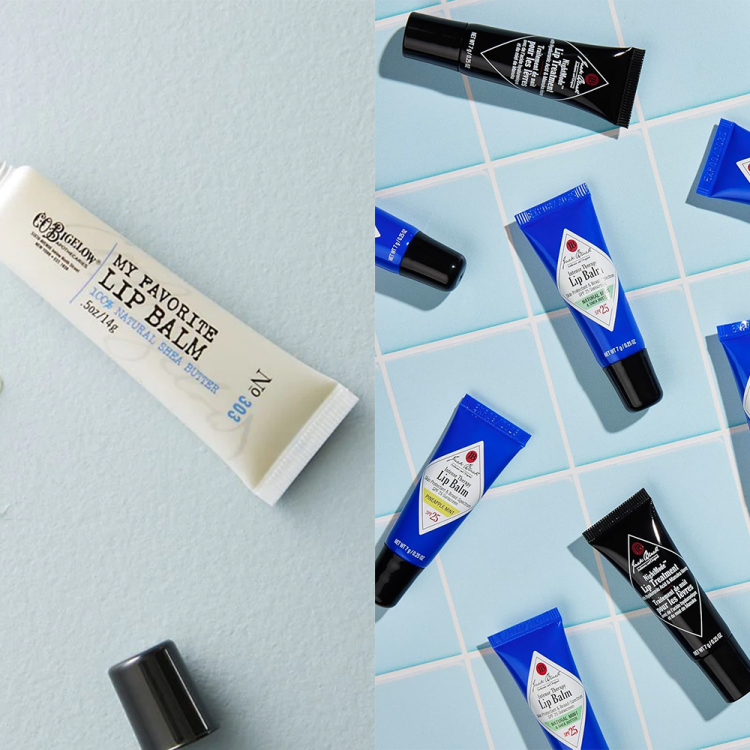Here’s a reason to stop ignoring that needy owl on your Duolingo app: a recent study discovered that speaking two languages can stave off dementia in old age.
While the benefits of bilingualism in kids have long been known, new research suggests that even adults who pick up a second language in midlife can substantially delay cognitive decline as they age. Switching back and forth between two languages strains and strengthens the same region of the brain that handles executive functions like memory.
In other words: chasing a second (or third) language is very much worth your time, considering it’ll probably give you more time to play with. Below, we explain why it’s never too late to start, the apps to download, the books to read and the little life hacks that will keep you on course.
It Looks Like a Vape, But It's Going to Help You Lose Weight
Is monitoring your “metabolic flexibility” worth it? We put the popular Lumen inhaler to the test.No More Age Limits
In his book Fluent Forever: How to Learn Any Language and Never Forget It, linguist and opera singer Gabriel Wyner offers some promising insight for adults hoping to stretch their brains and broaden their travel horizons.
Wyner dispels the commonly held notion that language learning is the purview of the very young: those of us lucky enough to be raised in bilingual households, or those who attend immersion schools. Children do learn language quickly, Wyner explains, because they get thousands of hours of exposure to native speakers (usually their parents). And it’s true — adults with jobs, bills and obligatory birthday drinks to attend don’t have quite as much free time to devote to this hobby.
What adults do have, says Wymer, is life experience and better study skills. In his view, this makes us better than kids at learning language. (Take that, precocious toddler in a beret.)
Where to Start?
If you’re brand-new to a language, you’ll need to build a base-level understanding of things like grammar and pronunciation. Even at this stage, though, Wyner says, it’s important not to get bored. Dullness turns on the filters in our brains that say, “Hey. Don’t worry about remembering this stuff.”
You can keep things interesting by personalizing the words that you learn. When you learn the word for “dog,” for example, don’t just think about a generic dog. Think about your dog and the little noises he makes when he sleeps. Think about that golden retriever in your building that wears boots on rainy days. The more memories you connect to your new word, the more it will stick with you.
As you progress with your new language, finding increasingly interesting ways to immerse yourself in the language will help stave off a plateau. This will also help ensure that you’re accessing what Wyner refers to as essentially two languages in one: the verbal and the written.
TV and Other Tools
To hear people speak in your new language, start first comfort watches. If you and your friends already speak mostly in Simpsons quotes, switch the settings and enjoy Homer’s idiot savant wisdom en espanol. Your familiarity with the show will help you understand what’s going on as you learn new words. Turning on subtitles is fine, but here’s the catch: they should be in your target language. Otherwise, your brain will just default to the translation.
Podcasts are also an interesting, effective and free way to log some time with your new language. There are shows available for learners at every level. On the Duolingo podcast , which is available in both Spanish and French, storytellers give poignant first-hand accounts of fascinating life events in their native language. An English-speaking narrator breaks in periodically for context. The News In Slow Podcasts are available in Spanish, French, Italian and German. These shows relay current events you’ll already be familiar with at a nice easy pace.
In fact, the news is a great place to turn for exposure to the written form of your new language, too. If you’re learning Spanish, you’ll be able to find an article every day or two that’s been translated in a major paper like the New York Times. The translated articles are often about major issues in Spanish-speaking countries, or the experience of Spanish speakers in the States, which is a great way to get new understanding and cultural context for your new language.
Finally: another great place to turn for written exposure is Young Adult fiction. If you’ve been looking for an excuse to finally read The Hunger Games, order a copy in your target language. In addition to having simpler verbiage, YA books are often action-packed and quite visual, which should help keep you mentally engaged.
Language Life Hacks
There are a number of bite-sized ways to immerse yourself in your language, too. Putting sticky notes on household items will help ingrain the fact that a sink is a fregadero (or l’evier or Spülbecken). Consider switching the language on your phone settings, and you’ll quickly be navigating your car and telling Siri to be quiet in your new tongue. And next time you’re assembling a piece of furniture from Ikea, read the instructions in your target language first, and see if they make any more sense that way.
Of course, speaking a new language means you will need to…speak it. Finding a safe place to do this without offending anyone with your French pronunciation is easier than you might think. Sites like Preply and iTalki offer very reasonably priced sessions with native-speaking tutors over video chat. You can also check your local Meetup page for groups where you can spend time talking to someone in your language, in exchange for conversing with them in English.
When it comes to experiences that are entertaining and immersive, nothing beats the experience of traveling to a different country. The first time you successfully order food or make someone laugh in your new language, all those not-so-hard hours spent watching cartoons and listening to podcasts will feel worth it. Sure, travel is one of the more expensive ways to strengthen your skills, but thanks to your newfound bilingualism, you now have extra healthy years in your life to save up for those epic trips. Bon voyage, indeed.
The Charge will help you move better, think clearer and stay in the game longer. Subscribe to our wellness newsletter today.

























